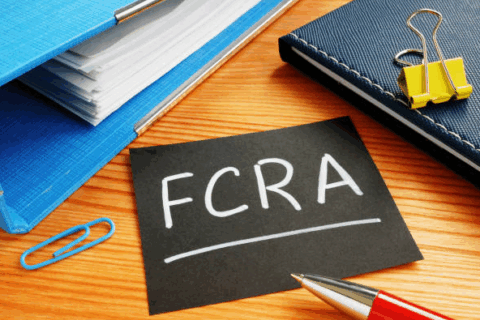Vicarious Liability Under the NI Act: The Supreme Court’s Ruling in HDFC Bank Case

In a significant ruling delivered on May 22, 2025, the Supreme Court of India addressed the contentious issue of vicarious liability under Section 141 of the Negotiable Instruments Act, 1881 (NI Act). The case, HDFC Bank Limited versus the State of Maharashtra and another respondent, saw the apex court scrutinize the Bombay High Court’s decision to quash criminal proceedings against Mrs. Ranjana Sharma, a director of a company that defaulted on its loan obligations to HDFC Bank. This article delves into the intricacies of the case, the legal arguments presented, and the Supreme Court’s comprehensive analysis leading to its landmark decision.
Table of Contents
Background of the Case
The case revolves around M/s R Square Shri Sai Baba Abhikaran Pvt. Ltd., a company with the following directors: Mrs. Ranjana Sharma, her daughter Ms. Rachana Sharma, and Mr. Rakesh Rajpal. The company approached HDFC Bank for a credit facility in the form of a Revolving Loan Facility to meet its working capital requirements. The bank granted the facility, which was subsequently enhanced multiple times. However, the company failed to repay the outstanding dues, leading to its account being classified as a Non-Performing Asset (NPA) on March 27, 2018. A cheque issued by the company for Rs. 6,02,04,217 was dishonoured due to an “account blocked” reason. Despite legal notices, the company and its directors failed to respond, prompting HDFC Bank to initiate criminal proceedings under Section 138 of the NI Act.
The Bombay High Court’s Decision
The Bombay High Court, in its judgment dated January 10, 2024, quashed the criminal proceedings against Mrs. Ranjana Sharma. The High Court held that the complaint filed by HDFC Bank did not contain sufficient averments to invoke vicarious liability against her under Section 141 of the NI Act. The court emphasized that the specific words “was in charge of” and “was responsible to the company for the conduct of the business of the company” were not used in the complaint, which are essential to establish liability under the section.
Rival Contentions
HDFC Bank contended that the averments in the complaint, when read with the supporting documents, clearly established that Mrs. Ranjana Sharma was in charge of and responsible for the company’s business. The bank relied on several judgments, including S.M.S. Pharmaceuticals Ltd. vs. Neeta Bhalla and Another, (2005) 8 SCC 89, arguing that the substance of the allegations, rather than the exact wording, should be considered. On the other hand, Mrs. Ranjana Sharma’s counsel argued that the complaint failed to meet the requirements of Section 141 of the NI Act. They emphasized that the exact wording of the section must be used in the complaint and that merely being a director does not establish liability. They cited judgments like Siby Thomas vs. Somany Ceramics Limited, (2024) 1 SCC 348, to support their argument.
Supreme Court’s Analysis
he Supreme Court analysed the averments in the complaint and found that they were sufficient to establish that Mrs. Ranjana Sharma was responsible for the day-to-day affairs, management, and working of the company. The Court held that the substance of the allegations, rather than the exact wording, should be considered. The Court emphasized that the complainant is not required to plead administrative matters that are within the special knowledge of the company or its directors. The Court concluded that the averments in the complaint fulfilled the requirements of Section 141 of the NI Act.
Legal Provisions and Judgments Relied Upon
The Supreme Court relied on several key legal provisions and judgments in its analysis. Section 141 of the NI Act imposes vicarious liability on persons who were in charge of and responsible for the conduct of the company’s business at the time the offence was committed. The Court cited judgments such as S.M.S. Pharmaceuticals Ltd. vs. Neeta Bhalla and Another, (2005) 8 SCC 89, which clarified that the complaint must specifically aver that the accused was in charge of and responsible for the conduct of the company’s business. The Court also referred to Monaben Ketanbhai Shah and Another vs. State of Gujarat and Others, (2004) 7 SCC 15, which held that the complaint need not reproduce the language of Section 141 verbatim if the substance of the allegations fulfills the requirements.
Conclusion
The Supreme Court’s decision in HDFC Bank Limited versus the State of Maharashtra and another respondent is a significant ruling that clarifies the scope and application of Section 141 of the NI Act. The Court’s emphasis on the substance of the allegations over the exact wording provides much-needed clarity on the issue of vicarious liability. By allowing the appeal and setting aside the Bombay High Court’s judgment, the Supreme Court has reaffirmed the importance of ensuring that directors and persons in charge of companies are held accountable for their actions. This judgment serves as a significant precedent for future cases involving similar issues and highlights the apex court’s commitment to upholding the principles of justice and accountability.
Case Citation
HDFC Bank Limited vs. State of Maharashtra and Anr., 2025 INSC 759 (May 22, 2025).
For further details write to contact@indialaw.in
By entering the email address you agree to our Privacy Policy.



